| | Hamas accepts a Qatari-Egyptian peace deal proposal, the vibes are good but the substance is lacking͏ ͏ ͏ ͏ ͏ ͏ |
| |  | Flagship |  |
| |
|
The World Today | 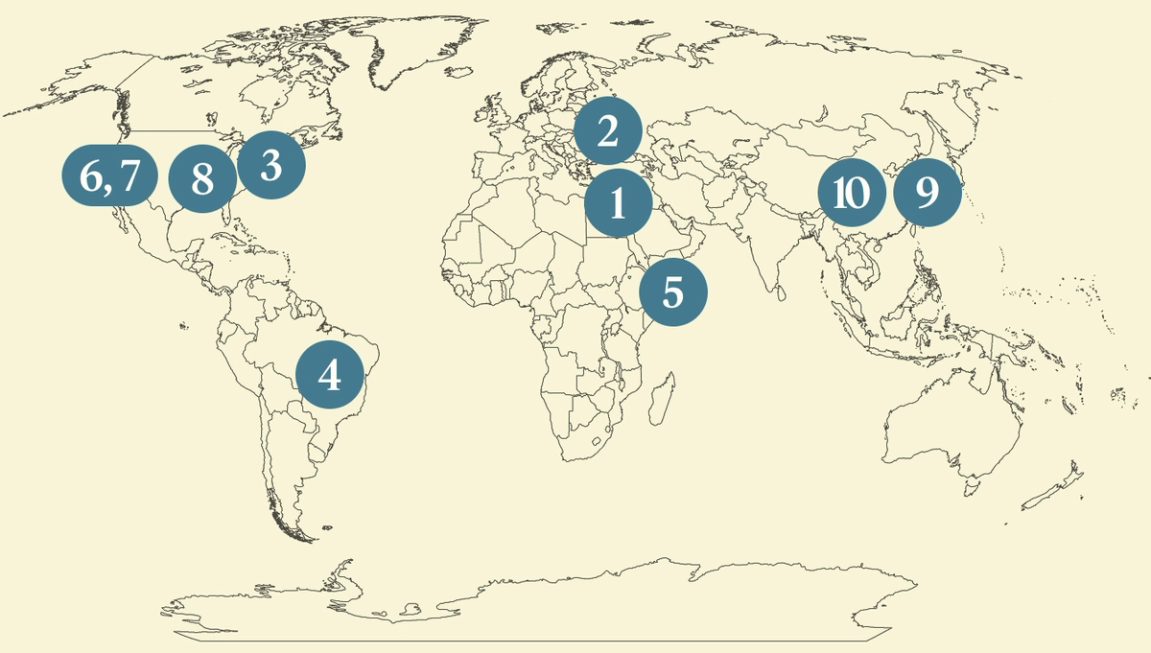 - Hamas accepts Gaza deal
- Good vibes in Ukraine talks
- The Trump-talk playbook
- Brazil pushes against US
- Somaliland’s US ties
- SoftBank backs Intel
- Altman AI ‘bubble’ warning
- First US utility SMR deal
- Samsung’s foldables boost
- How to teach Chinese
 Chinese tourists head to Europe, and a novel examines the nature of business genius. |
|
 Amir Cohen/Reuters Amir Cohen/ReutersHamas reportedly accepted a ceasefire proposal similar to one previously agreed to by Israel. The Qatari-Egyptian plan would see the release of Israeli hostages and Palestinian prisoners, and would require Israel to allow aid into the besieged territory: At least 263 people have died of starvation there, Al Jazeera reported. The plan apparently includes both an initial ceasefire and a route to an end to the war. Mediators have intensified diplomatic efforts ahead of a possible Israeli incursion into Gaza City, but it is unclear whether Israeli Prime Minister Benjamin Netanyahu is amenable: His finance minister, a far-right politician whose support is crucial for Netanyahu’s coalition, posted online that he opposed a partial deal. |
|
Ukraine talks’ vibes over substance |
 Kevin Lamarque/Reuters Kevin Lamarque/ReutersUkraine’s and Europe’s leaders left talks with US President Donald Trump in Washington on a positive note but with little clarity on the path to ending Russia’s invasion, analysts said. Officials lauded the strong ties on display following the White House meeting, but the Kremlin pointedly didn’t comment on Trump’s proposal of trilateral peace talks with Ukraine’s leader, Russia’s leader has shown little willingness to budge on his maximalist demands, and fighting along the front lines has not abated. Ukraine and Europe only have “wisps of possible Russian proposals,” one expert lamented, while another noted that American support for Kyiv is “always ambiguous,” adding that, “for better or worse, this war will likely go on.” |
|
World leaders look to flatter Trump |
 Alexander Drago/Reuters Alexander Drago/ReutersLeaders from Russia, Ukraine, and Europe who met with US President Donald Trump in recent days all followed a well-honed playbook to win over the American leader, experts noted. Kyiv and its NATO allies profusely thanked Trump for his leadership, while Ukraine’s leader ditched his patented military fatigues — which caused consternation during a prior Oval Office meeting — for a suit and pledged major purchases of US arms. At an earlier summit, meanwhile, Russia’s president himself “liberally laced his comments with flattery” of Trump. World leaders who meet with the American president are increasingly following the same strategy, dubbed by NPR as “the art of the praise,” in order to smooth interactions with Trump. |
|
Brazil pushes back against US |
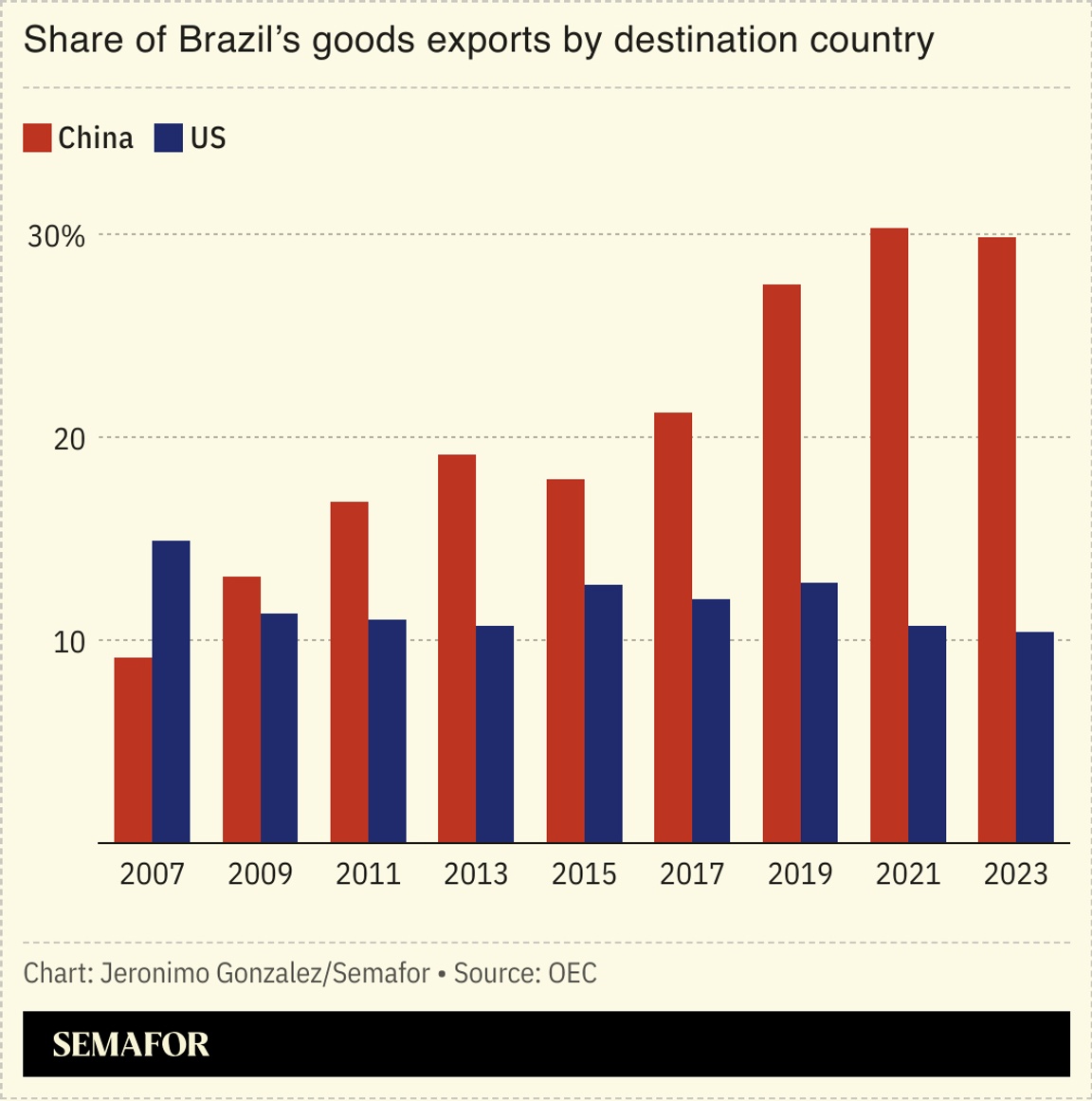 Brazil rejected a US probe into trade between the countries, signaling that Brasília won’t back down in its widening dispute with Washington. US President Donald Trump threatened Brazilian imports with a 50% tariff for what he says is the “witch hunt” of rightist former President Jair Bolsonaro, who is being prosecuted over an alleged coup plot. In response to the threats, Brazil has courted other nations to diversify trade, while China has built a huge export terminal close to São Paulo in part to increase its purchases of Brazilian — rather than US — soybeans. Meanwhile, the Brazilian Supreme Court judge prosecuting Bolsonaro vowed to see the trial through: “There isn’t the smallest of possibilities of retreating,” he told The Washington Post. |
|
US moves on Somaliland ties |
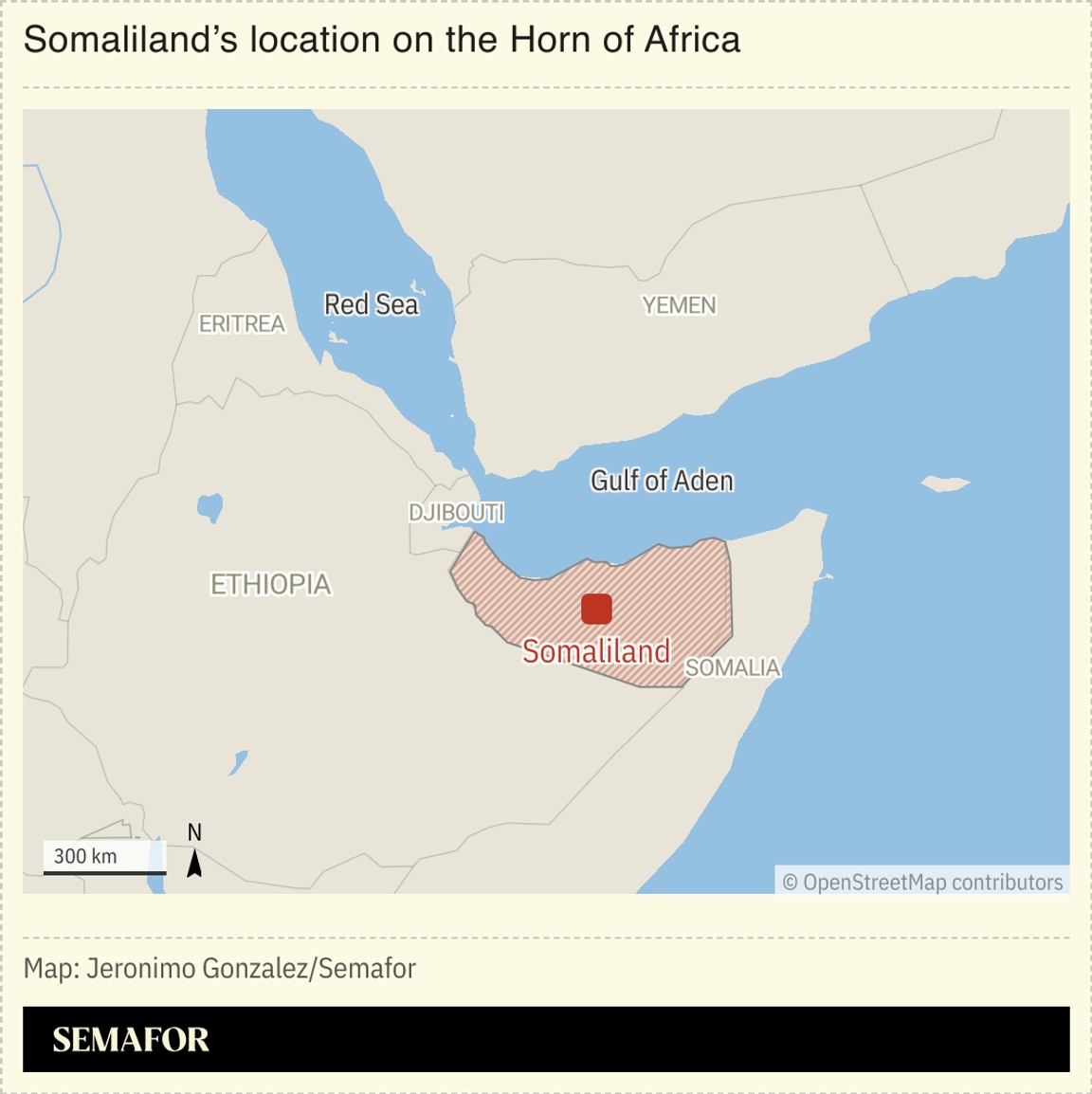 The US appeared to move closer to recognizing Somaliland, a breakaway territory which has intensified efforts to court official ties with Washington. Ted Cruz, who chairs the US Senate Foreign Relations Subcommittee on Africa, said Somaliland — which declared independence from Somalia in 1991 — had become a “critical security and diplomatic partner” to Washington: Somaliland this month offered the US a military base at the entrance to the Red Sea, through which 11% of global shipping passes, as well as access to its critical minerals in exchange for official relations. No country recognizes it as an independent nation, though Trump recently said his administration was “looking into” that. |
|
Softbank invests in Intel |
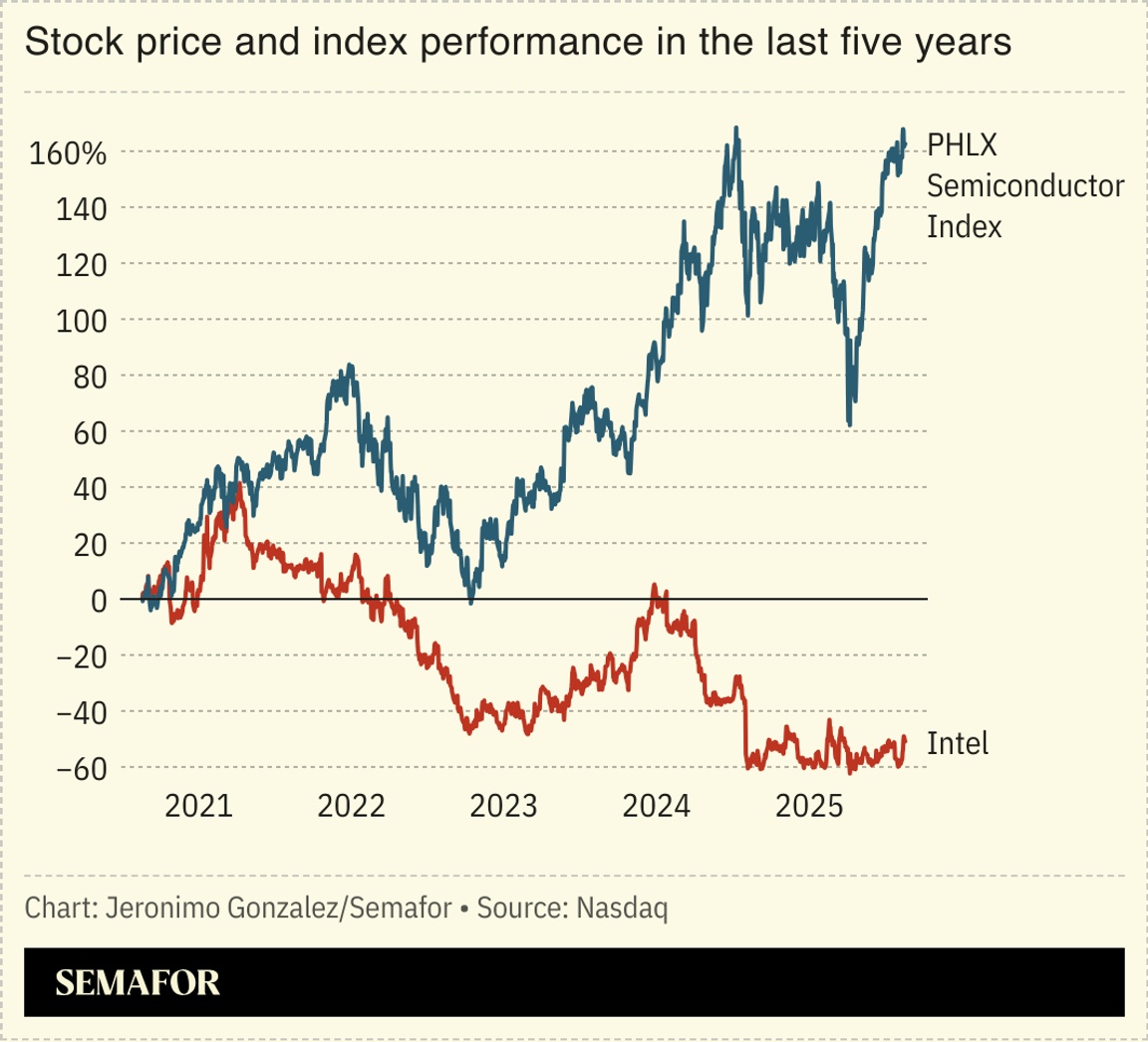 SoftBank will invest $2 billion in Intel. The Japanese firm’s decision follows news last week that the US government could take a stake in the troubled chipmaking giant. Intel has fallen behind other leading semiconductor firms, and its CEO warned recently that it could halt chip manufacturing in order to refocus its resources. Such a move would be a blow to Washington’s plans, however: Intel is the only company to make advanced chips on US soil. SoftBank’s investment represents a vote of confidence in the company and a bet that the Trump administration’s own support will go ahead, although while it buys Intel time, the company is still lacking the heavyweight customers it needs to grow, The Wall Street Journal said. |
|
Altman points to AI ‘bubble’ |
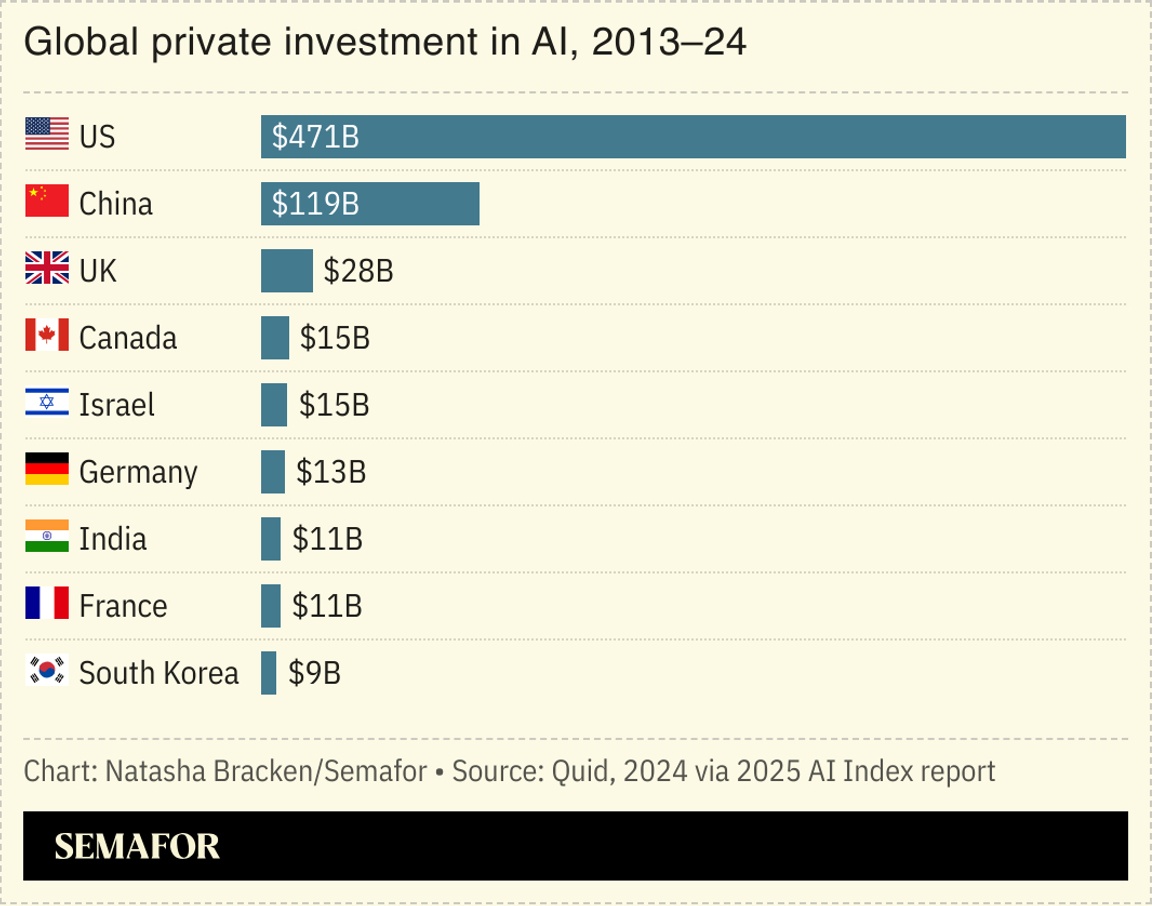 Sam Altman described artificial intelligence as a “bubble,” but also said the technology was “the most important thing to happen in a very long time.” Investors are chasing “a kernel of truth” but are “overexcited” about AI, the OpenAI CEO said, with some valuations becoming “insane.” A number of experts agree: The Apollo investment group’s chief economist noted that tech firms’ price-earnings ratios are unusually elevated, reminiscent of the late-1990s dotcom boom and subsequent crash, and also that spending on data center infrastructure accounts for a worryingly high percentage of US GDP growth. Altman, though, said OpenAI would “spend trillions of dollars on datacenter construction in the not very distant future,” even if economists think it “reckless.” |
|
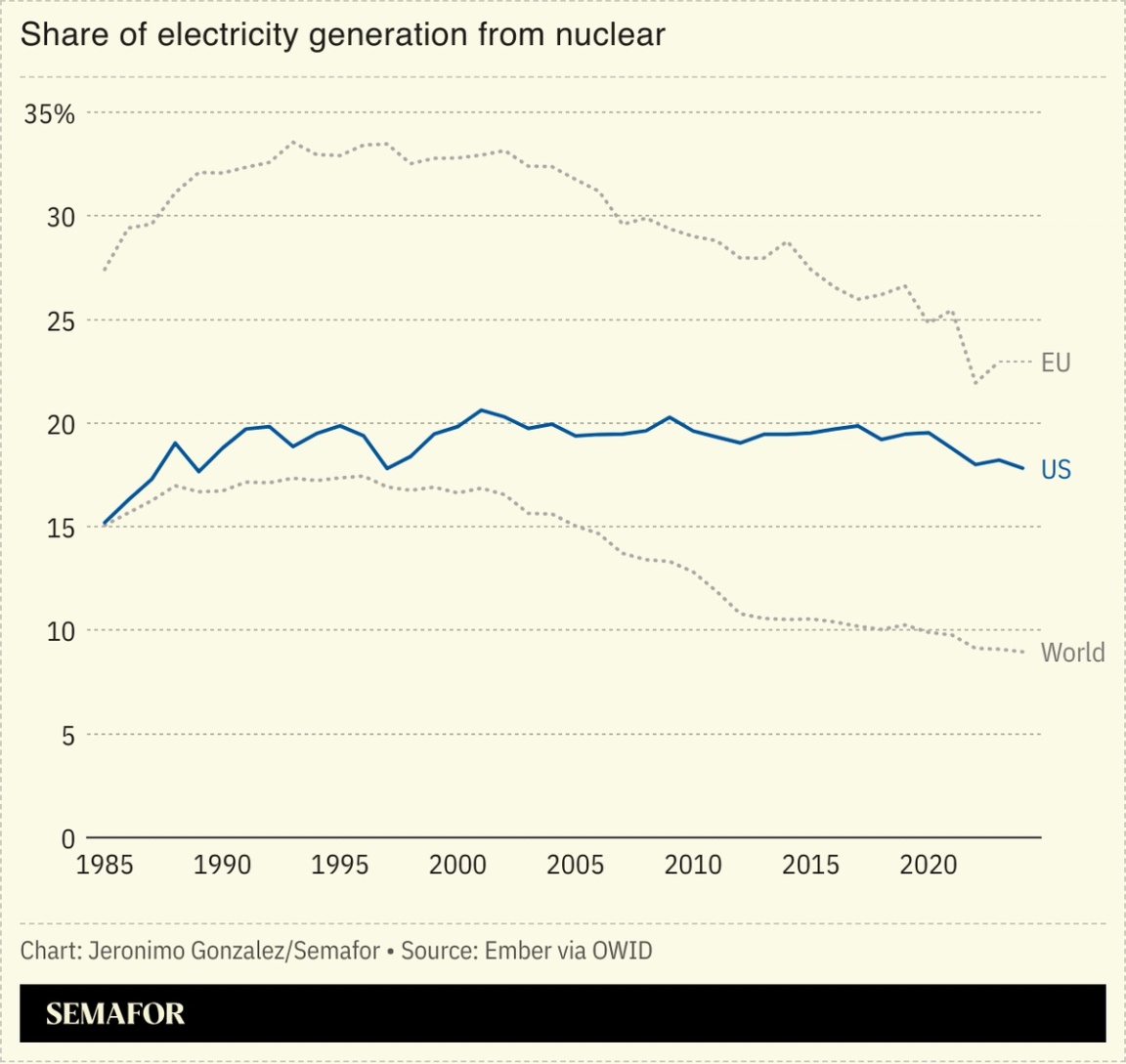 An energy provider in Tennessee became the first US utility to reach an electricity deal with a small modular nuclear reactor company. The three-way agreement between the Tennessee Valley Authority, the nuclear firm Kairos, and Google will cover a 50-megawatt reactor built to provide power to Google’s data centers in the state and neighboring Alabama. SMRs are expected in time to be much faster and cheaper to build than traditional large reactors, while still providing significant power: The Kairos plant could power 50,000 homes. Tech firms are increasingly turning to nuclear as a reliable source of clean energy as their demand for power goes up: Amazon, Meta, and Microsoft have also struck deals with nuclear companies. |
|
Samsung’s winning foldable bet |
 David Becker/Getty Images David Becker/Getty ImagesAnalysts credited Samsung’s surging smartphone market share to its move into foldable phones. Apple still dominates the US market, but its numbers slipped from 56% in Q1 to 49% in Q2, with Samsung taking up the ground, rising from 23% to 31% in the same period, CNBC reported. The South Korean tech giant unveiled two foldables last month, with larger screens that are still — while unfolded — usable in one hand. Many users, particularly women, have for years said the ever-growing size of modern smartphones makes them unsuitable for small hands. Apple is expected to launch a foldable of its own next year. It has also fallen behind rivals on artificial intelligence, and its shares are down 7.5% this year. |
|
|